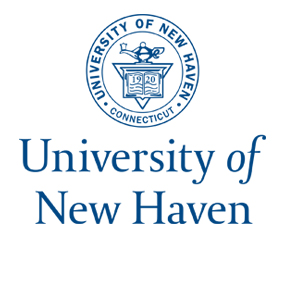
University News
University of New Haven Acquires Railroad Salvage Building and Land Adjacent to Main Campus
The 130,000 square-foot-building and 12-acre lot will be reimagined to create a pioneering Research and Development Center.
The Charger Blog
Inspired to explore the unique health challenges of international women, several Chargers recently collaborated on research that endeavored to spotlight the importance of these challenges. They recently shared their project with the Charger community as part of an exhibition at the University’s Seton Gallery.
March 4, 2024
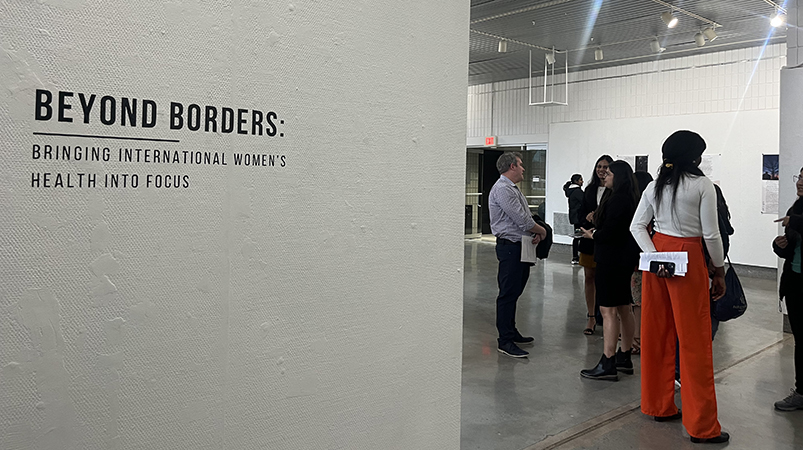
As student researchers and future public health professionals, Aishwarya Sreenivasan ’23 MPH, Priyanka Srirangam ’24 MPH, Muskan Kohli ’24 MPH, and Surya Madhavi Dinavahi ’24 MPH were inspired to explore a topic that was intimately familiar to them: the health of international women. Specifically, they hoped to better understand the challenges that international women face when it comes to accessing healthcare.
The researchers and their professor and mentor Yanice Méndez-Fernández, Ph.D., MPH, conducted research that included international women who are students at the University. Dr. Méndez-Fernández guided the students through the process of narrowing their research population, refining their question, selecting their methodology, and submitting the project through IRB approval.
The researchers used Photovoice, a community participatory action research that places community participants at the center of the research, enabling them to respond to a research question from their own perspective using photographs and narratives that represent their own experiences. The students led the Photovoice training and thematic analysis sessions, and project participants were involved in the trainings, data collection, and analysis. After concluding their research, they offered recommendations to the University based on their qualitative data. They plan to include the project participants in the preparation of a manuscript, as well as future presentations of their research and findings.
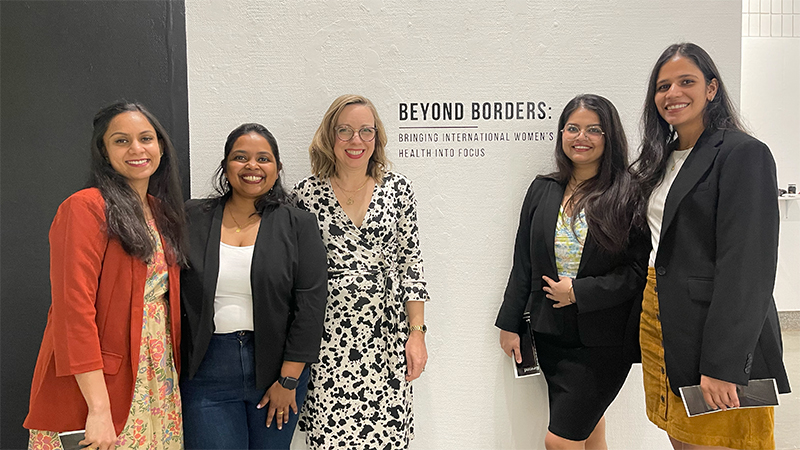
The “Beyond Borders: Bringing International Women’s Health into Focus” exhibition, recently displayed at the University’s Seton Gallery, was the culmination of a fascinating project. It was an interdisciplinary collaboration between student researchers as well as Chargers from the Theater and Psychology departments.
“This research project is a beautiful partnership between the student researchers, the project participants, and me as their mentor,” said Dr. Méndez-Fernández. “Because our study participants are international women, we chose to adapt the methodologies included in the Rutgers Photovoice Facilitator's Guide, which have been applied in research and advocacy work in Africa and Asia, regions where our participants come from.
“I feel truly fortunate to work at an institution where collaboration across disciplines is embraced, valued, and encouraged,” she continued. “I am especially grateful to Lillie Macias for sharing her valuable expertise in Photovoice, as well as Joseph Smolinski and Meg Savilonis for helping us coordinate the exhibit.”
Below, the student researchers reflect on their experience.
The quote, "Leave things better than you found them," spoken by New York City Commissioner of Health Ashwin Vasan at the Yale School of Public Health lecture series, deeply resonates with the Photovoice project that we envisioned. Titled "Beyond Borders: Bringing International Women's Health into Focus," this initiative aims to identify and address the unique challenges faced by international women students at the University of New Haven.
As an international student myself, I understand the complex emotions of this journey. We experience the familiar excitement about new opportunities alongside the anxieties of adapting to a new land. We juggle academic pressure, financial constraints, and the constant desire to secure a bright future. Like many others, I've sacrificed aspects of my well-being, compromising on nutrition to make ends meet, struggling to navigate medical situations, and striving to balance a fast-paced education with the fear of student loan burdens.
However, the challenges faced by international women, particularly regarding healthcare, healthy habits, and basic needs, are often compounded by factors such as limited healthcare knowledge, cultural differences, social stigmas, and financial constraints. These experiences, further amplified by race, ethnicity, and individual backgrounds, can significantly impact academic success and overall health.
This Photovoice project serves as a vital first step. By giving voice to these unique challenges, often dismissed as "normal" aspects of the international student experience, we aim to:
Through this initiative, we strive to leave things better than we found them, not just for ourselves but for future generations of international women at the University. We hope to leave behind a legacy of inclusivity, support, and a healthier academic environment where every international woman (and other students) can thrive.
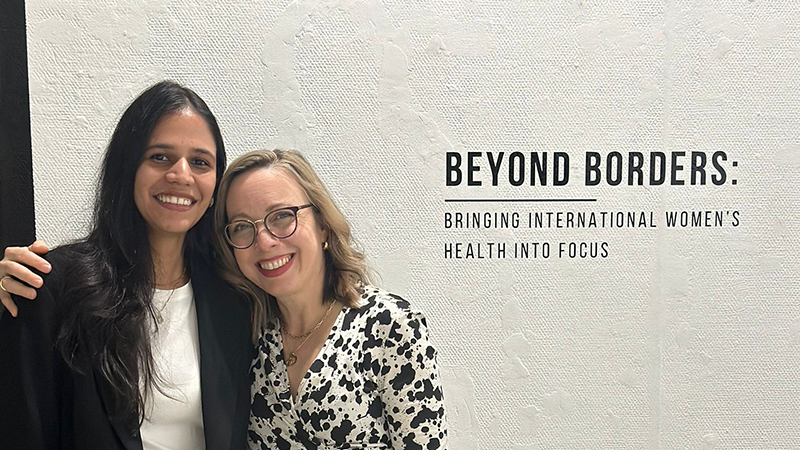
As an international woman, I have been keenly aware of the neglect and lack of awareness surrounding women's health, particularly on an international scale. This awareness prompted me to delve deeper into understanding the barriers faced by international women, especially students, in accessing healthcare. We often engaged in discussions on various public health topics and often ended up discussing certain topics such as healthcare access and adopting healthy behaviors, given our shared experiences.
Through these discussions, we uncovered common challenges that had previously gone unnoticed. This realization inspired us to take action, leading us to conceptualize a project that addresses the healthcare barriers that may be encountered by international women students at our University.
With the guidance and support of Dr. Yanice Mendez-Fernandez, we refined our project, ultimately adopting the Photovoice method as a means for participants to express their voices through photography. This project provided a platform for our fellow women students to express the challenges they encounter concerning the barriers faced while adopting healthy behaviors and accessing healthcare.
Throughout this project, as we trained and briefed the participants, we were happy to witness their willingness to openly discuss their issues. The participants resonated with each other's experiences and barriers. As the project progressed, participants not only offered insightful suggestions for addressing these barriers but also expressed how the Photovoice method provided them with a platform to voice their concerns and challenges.
Listening to the narratives and observing the photographs captured, it became evident to us the difficulties international women students encounter in accessing healthcare and adopting healthy behaviors. These insights spurred discussions around tailored solutions to better accommodate the unique needs of international women students, facilitating smoother transitions for international women students in our University community.
I am grateful to Dr. Mendez-Fernandez for her belief in our project and for her invaluable support throughout its implementation. Additionally, I am thankful to all the participants who came forward and shared their stories and photos in the exhibit, inspiring us and future students to initiate similar projects aimed at enhancing the healthcare access of students.
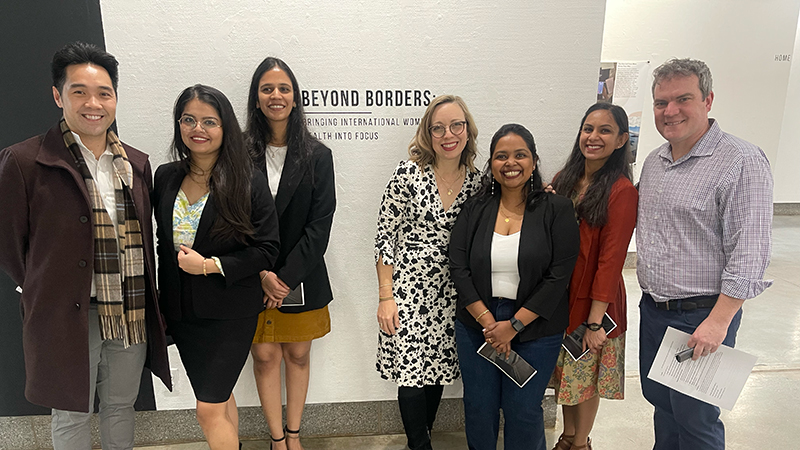
The Photovoice project has been an enlightening journey for me as well as the entire group. Reflecting on its inception, I realize that it stemmed from a personal struggle that transformed into a shared realization of common barriers among the international women students at the University of New Haven.
Collaborating with our inspiring mentor and PI, Dr. Yanice Mendez Fernandez, who shared our vision, guided us at each step, and remained our backbone throughout this project, we channeled this insight into a meaningful research endeavor, aiming to shed light on the often-overlooked struggles of international women students.
The entire process of recruiting participants, elucidating the research questions, and guiding participants to recognize their own barriers was immensely rewarding. It was more than just a project – it was an opportunity for profound personal and professional growth. Through this experience, I cultivated greater empathy and understanding toward the unique challenges women face, especially those of us from diverse international backgrounds.
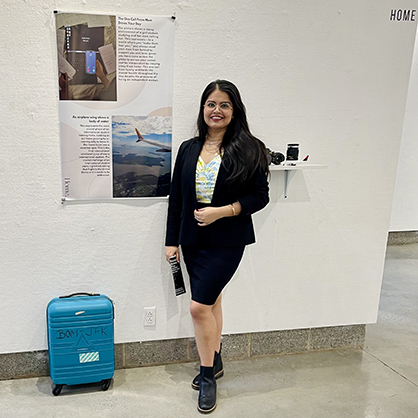
As a facilitator throughout the three main sessions of the project, I learned invaluable lessons. Patience, active listening, empathy, problem-solving, and creating a safe environment for expression were key attributes I honed. Witnessing participants find their voices in a space where they felt unheard before was incredibly empowering.
The exhibition brought our project to life, allowing the community to see firsthand the stories and struggles of international women through captivating photos and narratives, providing a platform for their voices to be heard. Seeing the viewers engage and resonate with the narratives and witnessing the impact of the stories on them underscored the importance of our project's mission and fueled our determination to continue advocating for positive change.
I believe the exhibition of the photos and the narratives have enabled the impact of this project to extend far beyond its immediate scope. It has sparked a ripple effect, prompting further research into the challenges faced by diverse populations on campus. The call to action, rooted in the themes captured through the participants' photos, underscores the urgency for change. Whether directing attention to leaders or advocating for policy alterations, the project sparks tangible steps toward a more inclusive environment.
Ultimately, this project has reinforced my belief in the transformative power of collective action guided by a clear vision. It underscores the notion that every positive change begins with a single thought, and with persistence and direction it can evolve into something truly impactful.
As international students, a new country and its healthcare system can be challenging to navigate. Even for us as being public health students, understanding the system was tough. The origin of the idea behind Photovoice was addressing the healthcare barriers faced by us. That compels us to think of other women facing similar issues. We wanted to identify if other women come across barriers to living a healthy life.
Utilizing our project Photovoice, we wanted to portray the healthcare barriers international women deal with while they are trying to pursue their education. The resulting information can be utilized to construct aids for the welfare of international women. Through our program, we acknowledge the fact that healthcare requirements vary. It’s not one size that fits all. With surveys or questionnaires, the needs shall be assessed, and healthcare solutions must be curated. Every woman should feel involved and valued while making choices.
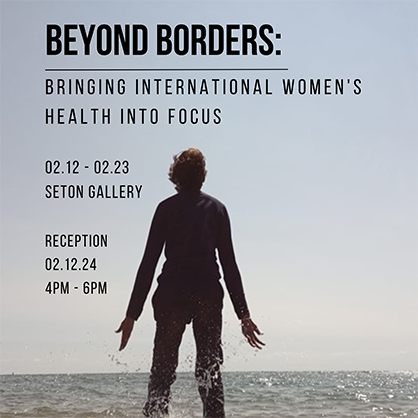
As researchers, it was inspiring to listen to stories from different parts of the world. All we did was create a platform for students to express themselves. This is a project that was an open space for them to share. Even before the final session, we all started to build connections that were safe and respected. Such connections build supporting communities that stand tall together.
Any system requires time and continuous effort to bring change. Our project is an initiative to sow a seed to modify the system. Through constant interventions, we can transform our healthcare facilities to better serve international women who manage higher education, personal responsibilities, and living away from the family. We hope this project is dynamic and persistently beneficial for students following in our footsteps.
Aishwarya Sreenivasan ’23 MPH, Priyanka Srirangam ’24 MPH, Muskan Kohli ’24 MPH, and Surya Madhavi Dinavahi ’24 MPH are recent graduates of the University’s Master of Public Health program.

University News
The 130,000 square-foot-building and 12-acre lot will be reimagined to create a pioneering Research and Development Center.
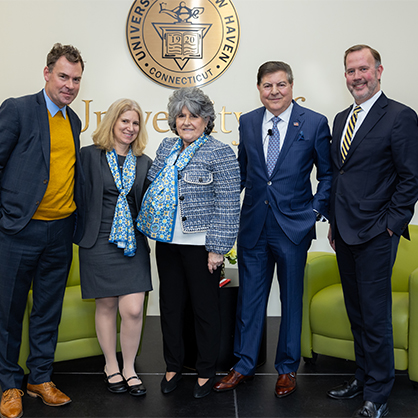
The Charger Blog
In an engaging fireside chat with the University of New Haven President Jens Frederiksen, Ph.D., Frank Martire ’77 MBA, an esteemed business leader, philanthropist, and advocate for higher education, shared insights on leadership, navigating challenges, and staying true to your values in a complex world.
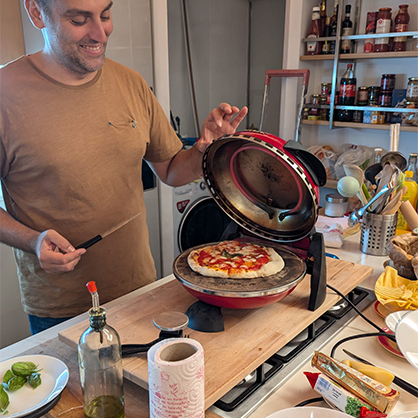
The Charger Blog
Students share their transformative moments from studying at the University’s Prato campus during the Fall 2024 semester.